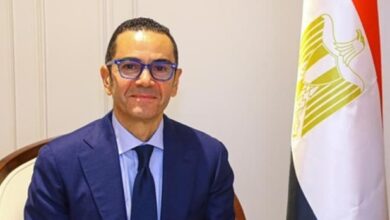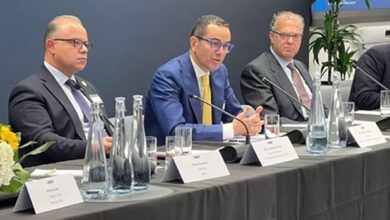Why won't the government come clean about Investment Minister Mahmoud Mohieldin’s recent decision to accept a managerial position at the World Bank? Can't it admit that the minister himself sought the new appointment? Or is the government afraid the truth may anger the Egyptian public?
Several interpretations have been offered to explain Mohieldin's decision, but none of them entirely compelling.
Some analysts claim the minister seeks to become a leading international economic expert, though he can achieve that in his current post by working closely with the Organization for Economic Cooperation and Development, the World Bank and other international institutions. Mohieldin was already on his way to gaining recognition by joining 21 of the most prominent economic experts in the world, including World Bank bigwigs and two Nobel Prize winners, on the Commission on Growth and Development.
Additionally, the World Bank and International Monetary Fund (IMF) no longer have that same luster that effectively brought fame to Abdel Shakour Shaalan–the Egyptian IMF representative who successfully negotiated an economic stabilization program for Egypt in the early 1990s–and earned him a meeting with the President Hosni Mubarak. The 2008 global financial crisis has even spurred calls to abandon these institutions and develop a new global financial system.
Still others claim the move came as a result of disagreements between Mohieldin and his colleagues in cabinet over how best to manage public assets and the role of the state in procuring investments. But history shows that Egyptian ministers are capable of patching up differences and have in fact been wary, since the 1950s, of being pitted against each other by members of government.
Mohieldin is neither after the glamor of the position nor motivated by financial gain. The politically ambitious minister–who has been extraordinarily active in government, maintaining good relations with old and new officials–cannot abandon Egyptian politics except for reasons related to the general state of the country and its poor prospects for the future. Perhaps this is the dreadful truth the government, and the minister, are trying to conceal.
That Mohieldin has been dodging reporters since news of his nomination broke gives rise to suspicions that the minister wants to avoid public scrutiny about the reasons behind his departure.
Prime Minister Ahmed Nazif, along with a number of ministers, have reportedly attempted to dissuade Mohieldin from leaving to Washington. The latter, in turn, left the matter in the President's hands. And until this moment, nobody knows where Gamal Mubarak stands on this issue, though he appears to have either failed to persuade Mohieldin to stay or has chosen not to interfere at all.
Sources close to Mohieldin have speculated that the minister opted for work overseas fearing an uncertain political future to which he may not be able to adapt. They have also suggest that Mohieldin is trying to follow in the footsteps of predecessors, like the late Ibrahim Shihata, a former senior vice president of the World Bank, and the late Said el-Naggar, a former executive director of the World Bank representing Arab countries.
Despite their competence, both Shihata and el-Naggar were not offered positions in the Egyptian regime. Will a similar fate await Mohieldin after his return from Washington?
Mohieldin was advised by people close to him against accepting the new appointment as it would potentially jeopardize his ambitions of running in Egypt's upcoming parliamentary elections. Others advised him to retire from the ministry and re-open his economic and legal consultancy firm which he operated for six months before being appointed minister.
Now rumors are spreading that Finance Minister Youssef Boutros-Ghali is eyeing an appointment as managing director of the IMF, a position traditionally held by a European but which may soon be opened up to other candidates. In such an event and with Mohieddin's departure, half of Egypt's free-market policymakers will have chosen to back away from the complicated domestic reforms that Mohieldin had previously promised the Egyptian public, either because they have given up or are searching for new opportunities elsewhere, and perhaps a Nobel Prize in economics.
According to the latest joke, Mohieldin wishes to go to Washington to acquire an international stamp of approval before coming back to run for the presidency, following in the footsteps of the International Atomic Energy Agency's ex-chief, Mohamed ElBaradei. The joke is a reference to the fact that when Mohieldin first became investment minister he expressed regret that the appointment was premature, adding that he wished to continue as a public servant until he could one day become prime minister.
With the prime ministry out of reach for now, the World Bank will serve as the minister's temporary safe haven.
Translated from the Arabic Edition.




